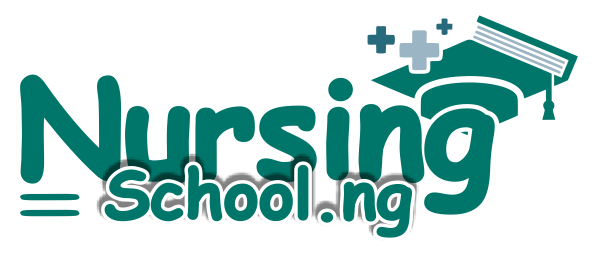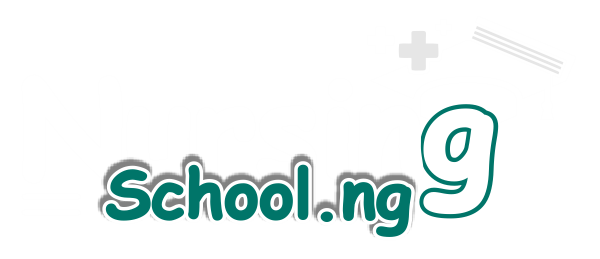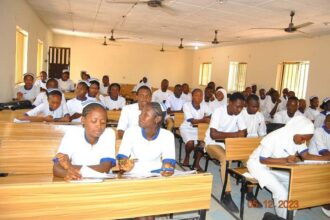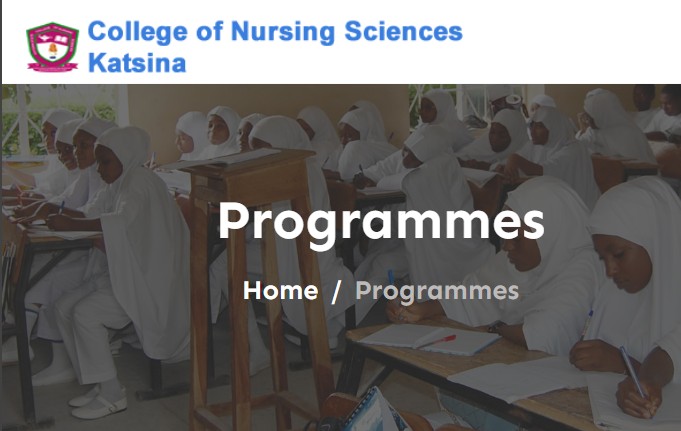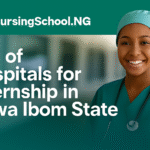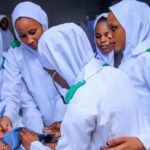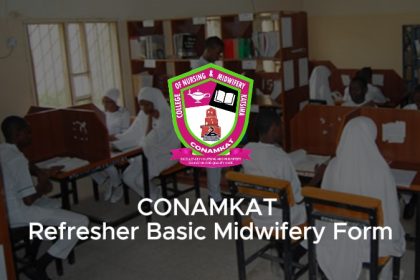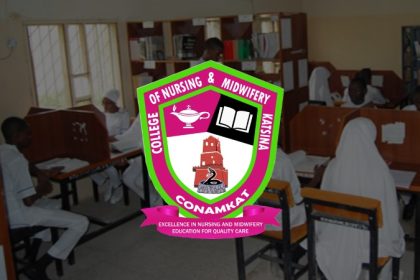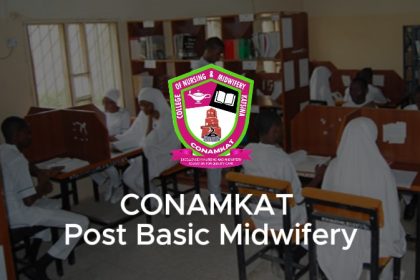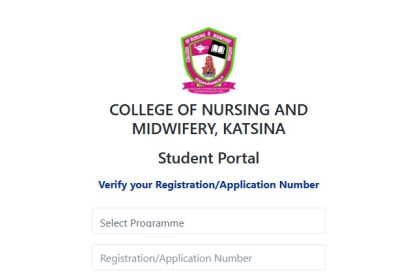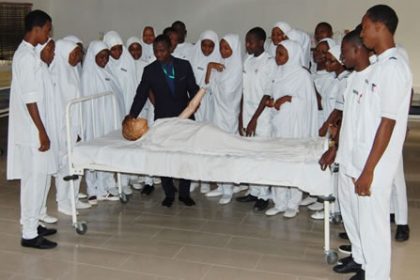In this post, you’ll find the latest information on the programmes offered in CONAMKAT. The College of Nursing and Midwifery Katsina (CONAMKAT) is one of Nigeria’s leading healthcare training institutions. Known for its diverse programmes and courses offered, the college equips students with the skills, clinical experience, and professional ethics required to thrive in nursing and midwifery careers both locally and internationally.
College of Nursing and Midwifery Katsina (CONAMKAT)
CONAMKAT was established to address the demand for skilled healthcare professionals in Katsina State and across Nigeria. Over the years, it has earned a reputation for producing graduates with strong clinical skills and ethical standards. The college operates under the guidelines of the Nursing and Midwifery Council of Nigeria (NMCN) and maintains a commitment to quality education, practical training, and community service.
Programmes Offered in CONAMKAT
The programmes offered in CONAMKAT are designed for various entry levels and career aspirations. Programmes include;
ND/HND Nursing
The National Diploma (ND) in Nursing is a foundational programme that equips students with essential nursing knowledge, practical skills, and professional values needed to deliver quality patient care. It blends classroom instruction in subjects such as anatomy, physiology, pharmacology, and nursing ethics with hands-on clinical experience in hospitals and healthcare facilities. ND Nursing graduates are qualified for entry-level nursing roles and may proceed to higher qualifications for career advancement.
The programme typically runs for four years (eight semesters), followed by one year of clinical attachment and the mandatory NYSC. Upon completion, students earn the Registered Nurse (RN) license and the Higher National Diploma (HND) in Nursing, which builds on the ND by offering more advanced clinical training, leadership skills, and specialised nursing knowledge. The HND qualification enhances career prospects and opens opportunities for further education, including bachelor’s or master’s degrees in nursing and related health sciences.
ND nursing Admission Requirements
- To join the National Diploma (ND) in General Nursing, you’ll need a strong academic foundation. Applicants must have at least five credit passes in WASSCE, SSCE, NECO, or GCE O’Level, earned in no more than two sittings. Your credits must include English Language, Mathematics, Chemistry, Physics, and Biology, no exceptions.
- Entry into the programme is through JAMB, so you’ll need to sit for the exam and score at or above the yearly cut-off mark set by the school. This means keeping an eye on the institution’s official announcements so you know the score to aim for.
HND nursing admission requirement
- If you already have a National Diploma in General Nursing, you can take your career further with the Higher National Diploma (HND) in Nursing. To qualify, you must have graduated from a recognized institution with at least a CGPA of 2.0 (Pass).
Note: The school may also conduct a screening exercise to make sure you’re a good fit for the programme, so be prepared.
Basic Nursing
The Basic Nursing programme is a three-year (six-semester) entry-level course designed to equip students with the core knowledge and practical skills required for safe and effective patient care. It combines theoretical studies in subjects such as anatomy, physiology, basic pharmacology, nursing procedures, and ethics with extensive hands-on clinical training in hospitals and healthcare centres.
By the end of the programme, graduates are well-prepared to take professional licensing examinations and work as qualified nurses in diverse healthcare settings, including hospitals, clinics, and community health facilities. This qualification serves as a solid foundation for further nursing education and career advancement.
Basic Nursing Admission Requirements
- To enrol in the Basic Nursing Programme, you must have at least five (5) credit passes in WASSCE, SSCE, NECO, NABTEB, or GCE O’Level, obtained in no more than two sittings. Your credits must include English Language, Mathematics, Chemistry, Physics, and Biology.
Basic Midwifery
The Basic Midwifery programme is a three-year (six-semester) foundational course, followed by one year of mandatory service, focused on the care of women during pregnancy, childbirth, and the postpartum period. It provides students with essential knowledge and hands-on skills in maternal and newborn health, antenatal and postnatal care, labor management, family planning, and reproductive health education.
Through a blend of classroom instruction and supervised clinical practice in maternity units, graduates are prepared to conduct safe deliveries, promote maternal well-being, and care for newborns. This qualification meets the professional requirements for midwifery licensing and opens opportunities for career advancement in maternal and child healthcare.
Basic Midwifery Admission Requirements
- The requirements for the Basic Midwifery Programme are the same as Basic Nursing. You’ll need five (5) credit passes in WASSCE, SSCE, NECO, NABTEB, or GCE O’Level, obtained in not more than two sittings, with credits in English Language, Mathematics, Chemistry, Physics, and Biology.
Community Midwifery
The Community Midwifery programme runs for two years (four semesters), followed by six months of mandatory service, with a strong emphasis on delivering maternal and newborn care in rural and underserved areas. It equips students with the skills to promote safe pregnancy and childbirth, reduce maternal and infant mortality, and provide culturally sensitive health education tailored to community needs.
The curriculum covers antenatal, intrapartum, and postnatal care, family planning, and community health outreach, supported by hands-on training in primary healthcare centres. Graduates are prepared to work collaboratively with families, local leaders, and healthcare providers to improve maternal and child health outcomes at the grassroots level.
Community Midwifery Admission Requirement
- If you’re applying for Community Midwifery, you must have four (4) credits in English Language, Biology, and any two of Mathematics, Chemistry, or Physics in WASSCE or NECO, at not more than two sittings. If you’re applying with NABTEB, the four credits must be obtained in one sitting.
Acceptable combinations include:
- WAEC & NECO
- WAEC & WAEC
- NECO & NECO
However, NABTEB results cannot be combined with WAEC, NECO, or another NABTEB.
Community Nursing
The Community Nursing programme is a two-year (four-semester) course followed by six months of mandatory service, focused on delivering community-based nursing care, especially in rural and underserved areas. It trains students to provide primary healthcare services, promote wellness, and address the unique health needs of specific populations.
The curriculum covers preventive care, health education, disease prevention, and the management of common illnesses, along with skills in assessing community health needs and implementing outreach programmes. Through practical training in community health centres, graduates are prepared to work closely with individuals, families, and local organisations to improve public health and overall well-being at the grassroots level.
Community Nursing Admission Requirements
-
The requirements for Community Nursing are identical to Community Midwifery. You’ll need four credits in English Language, Biology, and any two of Mathematics, Chemistry, or Physics, following the same rules for WAEC, NECO, and NABTEB combinations. The programme also spans two years (four semesters).
Post Basic Nursing
The Post Basic Nursing programme is a two-year (four-semester) advanced course designed for registered nurses seeking to specialize in specific areas of nursing practice. It builds on existing professional knowledge and clinical experience, offering in-depth training in specialties such as perioperative nursing, paediatrics, ophthalmic nursing, public health, and critical care.
Through a blend of advanced theoretical instruction and intensive clinical practice, the programme develops both expertise and leadership skills. Graduates are well-prepared to provide specialized patient care, assume senior professional roles, and contribute to raising healthcare standards in their chosen field.
Post Basic Nursing Admission Requirements
- To qualify for the Post Basic Nursing Programme, you must have five (5) credit passes in WASSCE, SSCE, NECO, NABTEB, or GCE O’Level (in no more than two sittings), with credits in English Language, Mathematics, Chemistry, Physics, and Biology.
In addition, you must:
- Present evidence of registration with the Nursing and Midwifery Council.
- Have at least two years of post-graduation experience.
- Hold a current practicing license.
Post Basic Midwifery
The Post Basic Midwifery programme is a one-year (two-semester) specialized course for registered nurses who wish to advance their expertise in maternal and newborn care. It offers in-depth training in managing pregnancy, labour, delivery, postnatal care, newborn health, and family planning.
Blending classroom instruction with extensive clinical practice in maternity units, the programme equips graduates to provide safe, evidence-based midwifery services. Upon completion, nurses are prepared to take on specialized midwifery roles, support safe motherhood initiatives, and contribute to reducing maternal and infant mortality rates.
Post Basic Midwifery Admission Requirements
- The requirements for Post Basic Midwifery are the same as for Post Basic Nursing, five credits in core science subjects, council registration, two years’ work experience, and a valid license.
Essential Tips for Aspiring CONAMKAT Students
- Apply early to secure your place.
- Prepare well for entrance exams, focusing on science subjects.
- Verify all documents to avoid application delays.
- Choose a programme that aligns with your long-term career plans.
Career Opportunities for Graduates
Having been done with any of the programmes offered in CONAMKAT, graduates of CONAMKAT can pursue careers in:
- Government and private hospitals
- Maternal and child health centers
- Community health outreach programmes
- International organizations like WHO and UNICEF
- Nursing education and training roles
- Specialized fields such as pediatric, critical care, and public health nursing
The College of Nursing and Midwifery Katsina (CONAMKAT) offers a rich selection of programmes offered and courses offered that open the door to a rewarding healthcare career. With clear admission requirements, excellent training, and strong career prospects, it is an outstanding choice for aspiring nurses and midwives.
